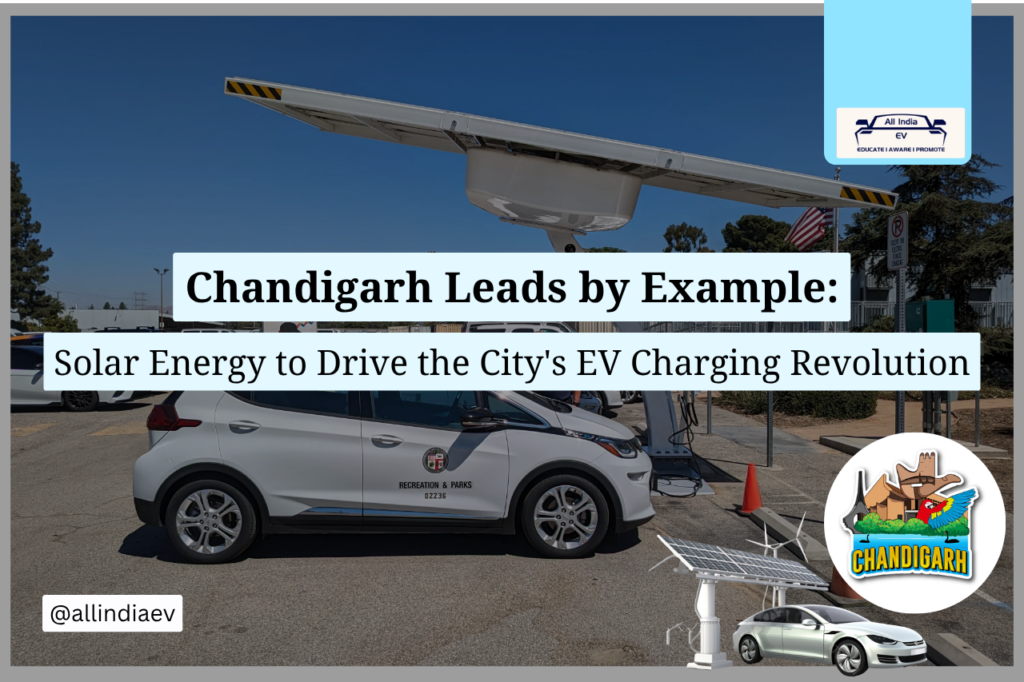
Chandigarh to Pilot Solar EV Chargers, Aims to Replace 35 Grid-Powered Stations & Overhaul Policy for Greener Mobility
In a move aimed at strengthening its clean mobility agenda, the Chandigarh Union Territory (UT) administration has announced plans to power electric vehicle (EV) charging stations using solar energy. The initiative, being launched as a pilot project, will integrate solar power with EV infrastructure at four public charging locations across the city.
According to officials, this step is part of a broader effort to create sustainable, energy-efficient charging networks. “The goal is to reduce dependency on conventional electricity and promote long-term green mobility solutions. Solar-powered EV charging is a win-win for both energy and environment,” a senior UT official stated.
The Chandigarh Renewable Energy and Science & Technology Promotion Society (CREST)—the city’s nodal agency for clean energy—will lead the project. One of the pilot locations is at IT Park, where rooftop solar panels have already been installed in a public parking area. The project will include both existing and new EV charging stations as part of its initial phase.
Currently, Chandigarh has 35 public EV charging stations, all of which are connected to the conventional power grid. The new integration aims to decarbonize the charging process itself, aligning with the city’s broader clean energy goals.
Solar-EV Synergy to Be Reviewed Under EV Policy Meeting
The proposed solar integration is set to be a key agenda item during the upcoming review meeting on the city’s EV policy, scheduled for Thursday. The meeting, chaired by the UT Chief Secretary, will assess the progress of the 2022 EV Policy and introduce new measures to accelerate electric vehicle adoption.
One of the main focus areas will be the revision of the EV incentive framework. Officials have confirmed that the allocation for incentives in certain EV categories has already been exhausted, prompting a proposal to reintroduce or increase subsidies where demand is strongest.
“The administration is targeting 18–20% EV penetration by the end of the current financial year,” said the official. “Reallocating incentives based on category-wise demand will help us achieve that goal and maintain Chandigarh’s position as a leader in sustainable urban transport.”
Policy Success and Setbacks
Chandigarh’s EV policy, introduced in 2022, initially saw strong uptake with a notable rise in EV registrations. However, a drop in new registrations was observed after incentives in specific segments were discontinued.
Officials believe that policy recalibration, along with innovations like solar-powered charging, will help regain momentum. The city aims to balance adoption with infrastructure readiness while minimizing its carbon footprint.
Air Purification Tower to Be Removed
In a parallel development, the Chandigarh Pollution Control Committee (CPCC) has issued a notice to dismantle the 24-metre-tall air purification tower at Transport Chowk. Installed in 2021 to curb urban air pollution, the tower reportedly failed to meet performance benchmarks, prompting the decision to remove it within three months.










